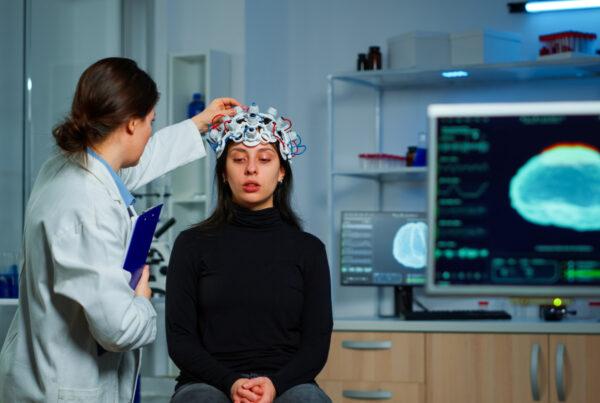A person’s mental health can be influenced by a variety of factors including genetics, environment, lifestyle, and life experiences. Engaging in regular exercise, eating a healthy diet, practicing stress management techniques, and seeking professional support when necessary are all important steps in promoting good mental health. It is also important to prioritize self-care and take time to engage in activities that bring joy. Traumatic experiences, chronic stress, substance abuse, and social isolation are all factors that can contribute to poor mental health.
What is mental health?
Mental health refers to a person’s emotional, psychological, and social state, and encompasses their ability to cope with daily stressors, form positive relationships, and function effectively in society. Mental health is not just the absence of mental illness; it is also the presence of positive emotions, healthy thought patterns, and a sense of purpose and fulfillment.
Mental health disorders can range from mild to severe and may include conditions such as depression, anxiety, bipolar disorder, schizophrenia, and post-traumatic stress disorder (PTSD). These conditions can affect a person’s ability to function in their daily life, leading to difficulties in relationships, work, and social situations.
In summary, mental health is a critical component of overall well-being. It encompasses a wide range of factors that contribute to a person’s emotional, psychological, and social state, and plays a vital role in a person’s ability to cope with daily stressors and enjoy positive relationships and experiences.
What are the different types of mental health disorders?
There are numerous sorts of mental health diseases, each with its own distinct set of symptoms, causes, and treatments.
Some of the most frequent mental health diseases are as follows:
- Anxiety disorders: Anxiety disorders are a collection of mental health illnesses distinguished by severe and persistent sensations of fear and worry. Generalized anxiety disorder, panic disorder, social anxiety disorder, and phobias are some examples.
- Mood Disorders: Mood disorders are mental health issues that impact an individual’s emotional state. Major depressive disorder, bipolar disorder, and seasonal affective disorder are a few examples.
- Personality Disorders: A category of mental health diseases characterized by harmful patterns of thinking, behaving, and relating to others are known as personality disorders.
- Mental health illnesses: Mental health illnesses known as eating disorders entail unhealthful connections with food and body image. Examples include binge eating disorder, bulimia nervosa, and anorexia nervosa.
- Substance Use Disorders: Substance use disorders are conditions of the mind that are characterized by a person’s addiction to alcohol or drugs. Alcoholism, drug addiction to opioids, and cocaine addiction are a few examples.
- Psychotic Disorders: A category of mental health illnesses known as psychotic disorders are characterized by bizarre thoughts and sensations. There are two examples of Schizophrenia and delusional disorder.
- Obsessive-Compulsive Disorder: Obsessive-Compulsive Disorder (OCD) is a mental health disease that is characterized used by obsessive thoughts and compulsive actions that a person feels compelled to engage in order to lessen their distress.
- Schizophrenia: Schizophrenia is an extreme intellectual infection that influences a person’s thoughts, feelings, and behavior. It can cause hallucinations, delusions, and disorganized thinking, among other symptoms.
- Attention-Deficit/Hyperactivity Disorder (ADHD): ADHD is a condition that impairs one’s capacity for impulse control, focus, and attention.
- Autism Spectrum Disorder (ASD): ASD is a neurodevelopmental condition that impacts a person’s capacity for social interaction, communication, and play.
- Dissociative disorders: Dissociative disorders cause issues with memory and identity because they cause a person’s thoughts, feelings, and experiences to be disconnected from one another.
- Characterized by thought, behavior, and emotion patterns that are deemed maladaptive and might interfere with social and vocational functioning, personality disorders are a set of disorders.
Remedies to cure Mental health issues
Mental health problems are complicated and can be caused by a variety of variables, including genetics, life events, and environmental influences. While dealing with mental health concerns, it is critical to get expert care; however, here are ten cures that can help improve your mental health:-
- Exercise on a regular basis: Exercise produces endorphins, which are natural mood enhancers. Frequent exercise can also help to reduce anxiety and stress, resulting in improved mental health.
- Chamomile: Chamomile is a natural sedative that can help reduce anxiety and promote relaxation. You can drink chamomile tea or take chamomile supplements to help manage anxiety.
- Seek social support: Good mental health requires social support. Interacting with people, whether through friends, family, or support groups, can help your mental health.
- Sleep well: Sleep is critical for keeping great intellectual health. To control your mood and energy levels, aim for 7-9 hours of sleep every night.
- Have a healthy, balanced diet: By giving your brain the nutrition it needs to function properly, a diet rich in fruits, vegetables, lean protein, and healthy fats will help you feel better mentally.
- Restrict your alcohol and drug use because these substances can exacerbate mental health issues and make recovery more difficult. If you’re having problems with substance usage, get treatment from a specialist.
- Practice relaxation methods: Relaxation methods, such as progressive muscle relaxation and deep breathing, can help lower tension and anxiety.
- Challenging your negative thoughts might lead to mental health problems. To help you shift your thinking, practice recognizing and rebuking unfavorable thoughts.
- Try therapy: Counselling can assist you in exploring your ideas and feelings, learning coping mechanisms, and enhancing your mental well-being.
- Take part in interests and activities you enjoy: Doing fun and relaxing activities can lift your spirits. Take part in pastimes or pursuits that make you happy, such as hiking, reading, or painting.
Remember, recovery from mental health issues is a process, and it’s important to seek professional help when needed. These remedies can complement professional treatment and help improve your mental health.
Conclusion
It’s important to remember that mental health conditions are complex, and treatment often involves a combination of medication, natural remedies, therapy, and lifestyle changes. Seeking help from a qualified mental health professional is the first step toward recovery.










